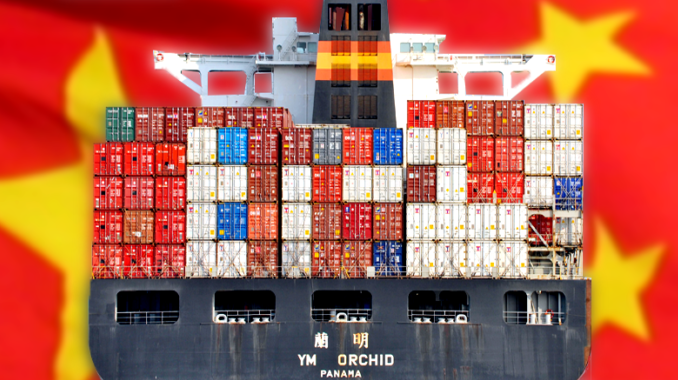
The United States ambassador to Italy, Lewis M. Eisenberg, spoke today about Italy’s decision to sign on to China’s “Belt and Road Initiative” plan. He addressed a gathering for NATO’s 70th anniversary at the Centro Studi Americani (American Studies Center) in Rome.
“It’s a good thing that 5G has been removed from the Italy-China memorandum, but there is sorrow that Italy has become the first G7 country to sign the Silk Road agreement.
“The USA cannot share information with countries that adopt Chinese technologies.
“There will be long-term implications.
“We are seriously worried about the consequences for NATO interoperability. “Everyone wants to do business with China, but there are information threats”.
ANSA
He is correct in his assessment of the situation. He is also underselling the problem.
China’s BRI (originally known as One Belt, One Road) is an effort to create two trade routes between China and Europe, one by land and one by sea.
They are continually presented as a “New Silk Road”, a reconstruction of the legendary trade route traveled by Marco Polo. As such, it has been dismissed as a “vanity project” by the Trump administration.
The comments by Eisenberg are being seen by some as indicative of the true U.S. concern about the project. With Chinese efforts to incorporate their technology into nations’ 5G development, there are significant concerns about potential infiltration by intelligence gathering and cyberattack groups.
This is not at all unreasonable. It is also demonstrating one of the great failures of nations throughout history: fighting the last war.
Cybersecurity needs to be a key concern for all developed countries. In an era where another nation can launch a successful psychological operation by flooding social media with shareable memes designed to foster internal division or access to highly utilized commerce and information sources can be shut down from half a world away, such security is paramount.
What is equally important, however, is trade. This is where China is making its move. If the stated fear of China using its trade as a cover for its cyber infiltration is valid, it nevertheless misses the point that even without such deception, the trade shift is incredibly dangerous for the United States.
American exceptionalism is based on the growth we are able to achieve by removing limits from individual development. The freedom to pursue dreams has resulted in success in nearly every aspect of human endeavor. That said, the influence of America across the world manifests in two ways: by example and by association.
Our example has already been presented, and other countries have followed it. America is no longer the only representative republic on Earth, nor is it unique in having a individual-empowering constitution. Other nations can, and have, examined America and adopted the elements which they believe aided our success. The association is therefore where our continued superpower status lies: in the military and trade alliances we have fostered.
As the BRI takes hold, China will not only have direct control over ports in countries throughout the world and, in most places, control over key mineral rights which will further fuel its national wealth; it will also have an increase in the valuable currency of “influence”.
The BRI does not simply offer countries an alternative to American trade. It places Chinese control over key ports of entry, which in turn gives China a superior position for international negotiations.
A look at the nations involved in the BRI is telling: they are Asian nations with which China already has significant influence, and can therefore be used as a network to choke trade efforts by other world powers; they are Mideast nations where American influence is currently weakened (Iran, Pakistan) and they are European and African nations who have traditionally been strong Allies of the United States: Poland, Kenya, Greece, and now Italy.
While we expect to move forward without the support of countries which are not currently aligned with us, the prospect of having key regional allies simultaneously boosted in their wealth and influence (due to being a trade hub) and diverted away from their association with us should be a dire alarm.
The answer to this needs to be an immediate effort to demonstrate to other countries that America is a superior trading partner to China. Instead, the opposite is happening; we are increasing tariffs while China is streamlining trade.
Dismissing the value of international trade and its long-term effects on international diplomacy is not making America great again. It is sowing the seeds for significantly diminished strength on the world stage, and possibly the end of the United States as a global superpower.

1 Trackback / Pingback
Comments are closed.